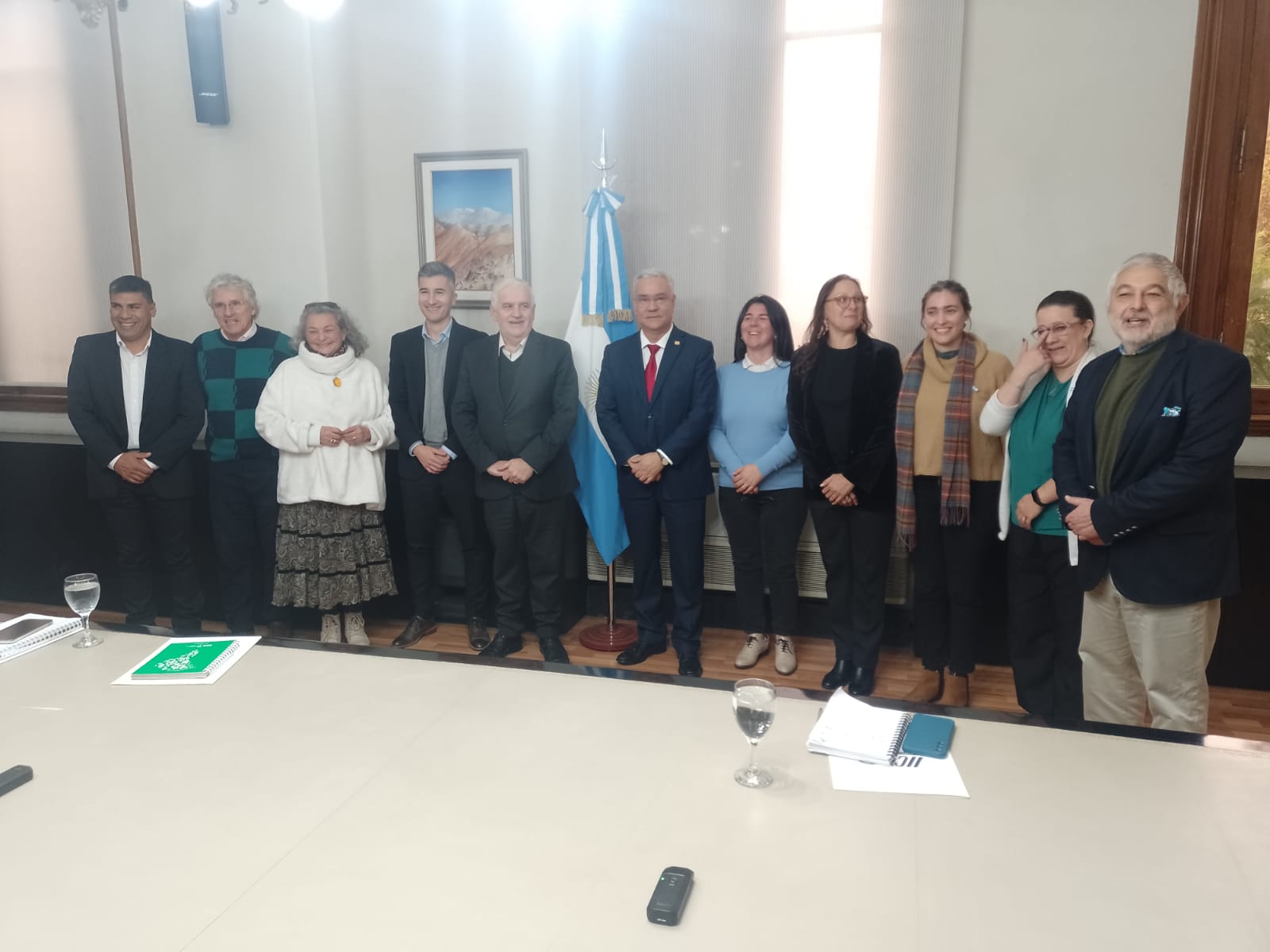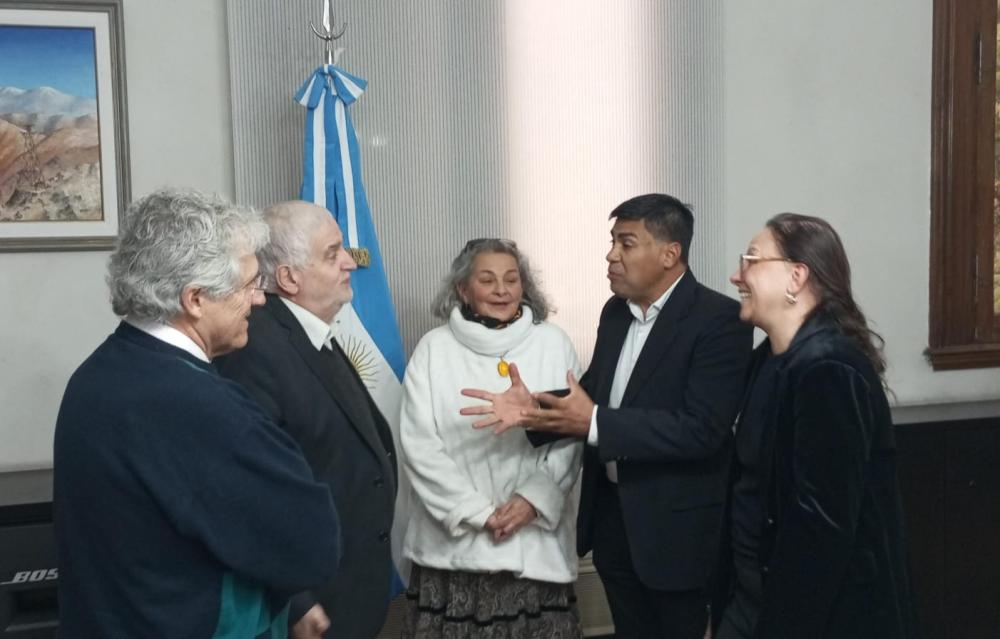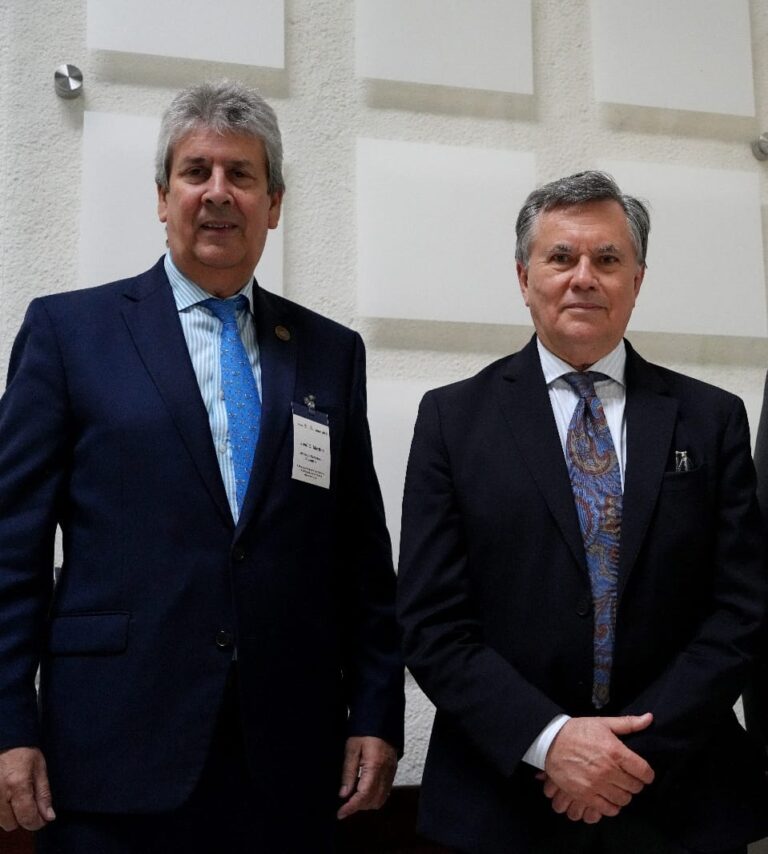This was agreed upon during a meeting with the Secretary of Bioeconomy, Fernando Vilella, who expressed interest in the role that Leaders of Rurality can play as positive examples in their territories to strengthen rural ties and the sustainability of production and he committed to developing a joint agenda.

Buenos Aires, 28 May 2024 (IICA) – Argentine Leaders of Rurality recognized by the Inter-American Institute for Cooperation on Agriculture (IICA) will work together with the country’s Secretariat of Bioeconomy on projects to strengthen cooperatives, family farming, and rural schools.
This was agreed upon during a meeting with the Secretary of Bioeconomy, Fernando Vilella, who expressed interest in the role that Leaders of Rurality can play as positive examples in their territories to strengthen rural ties and the sustainability of production and he committed to developing a joint agenda.
The Leaders of Rurality of the Americas include more than 40 women and men from various countries in the continent, distinguished by IICA for fulfilling a dual role: they guarantee food and nutritional security while also safeguarding the planet’s biodiversity through their production activities in different circumstances.
The Argentine Leaders of Rurality, who were introduced to Secretary Vilella by the IICA Representative in Argentina, Fernando Camargo, are: Patricia Gorza, a livestock producer from the municipality of 9 de Julio; Andrea Izzo Capella, creator of a cultural center aimed at empowering rural women in Las Flores; José Muñoz, an educator and promoter of organic farming from the province of Catamarca; and Alina Ruiz, a cook who promotes the utilization and appreciation of local products in Chaco.
Also involved in the development of the work plan presented at the Secretariat, though not present at the meeting, were two other Argentine Leaders of Rurality: Milagros Paulón, a young woman who runs a dairy farm in Brandsen; and Daniel Bruno, a rural teacher from the province of Corrientes who taught via radio during the Covid-19 pandemic to ensure rural children continued their education.
Continued Collaboration
Gorza, Izzo Capella, Muñoz, and Ruiz shared with Vilella the experience they had in April in Costa Rica, where the First Meeting of Leaders of Rurality of the Americas, organized by IICA at its headquarters, took place.
During this meeting, they spent a week with other leaders of the hemisphere and agreed to establish a network to promote actions to strengthen rural territories in the Americas and their key players.

“Those were very enriching days, and learning about the realities of rural inhabitants from other countries in the region, who are deeply connected with their community’s daily work, brought us together as a group,” said the Argentine leaders.
The key areas of work proposed by the Argentine Leaders of Rurality to the Argentine Secretariat of Bioeconomy include:
– Cooperatives: Promote the creation of new cooperatives and strengthen existing ones through access to resources, training, and technology.
– Rural and Agricultural Schools: Enhance infrastructure and programs, and promote alignment with the productive needs of the rural sector.
– Germplasm Bank: A tool for conserving agricultural biodiversity and adapting to climate change, facilitating the research and development of new seed varieties that contribute to resilience.
– Family Farming Seal for the Americas: An initiative to ensure that foods from small- and medium-sized producers are valued and differentiated in the market.
“Through these key areas – as stated in the document handed to Secretary Vilella by the Argentine Leaders of Rurality – the necessary conditions for sustainable, equitable, and prosperous rural development can be created. The territorial impact of these joint actions will transform the rural landscape, generating more resilient, equitable, and sustainable communities across the country.”
More information:
Institutional Communication Division.
comunicacion.institucional@iica.int











